Albania is a small, mountainous nation in the Balkan Peninsula of southeastern Europe. It is one of the least developed countries in Europe. Many Albanians make their living working on small farms.
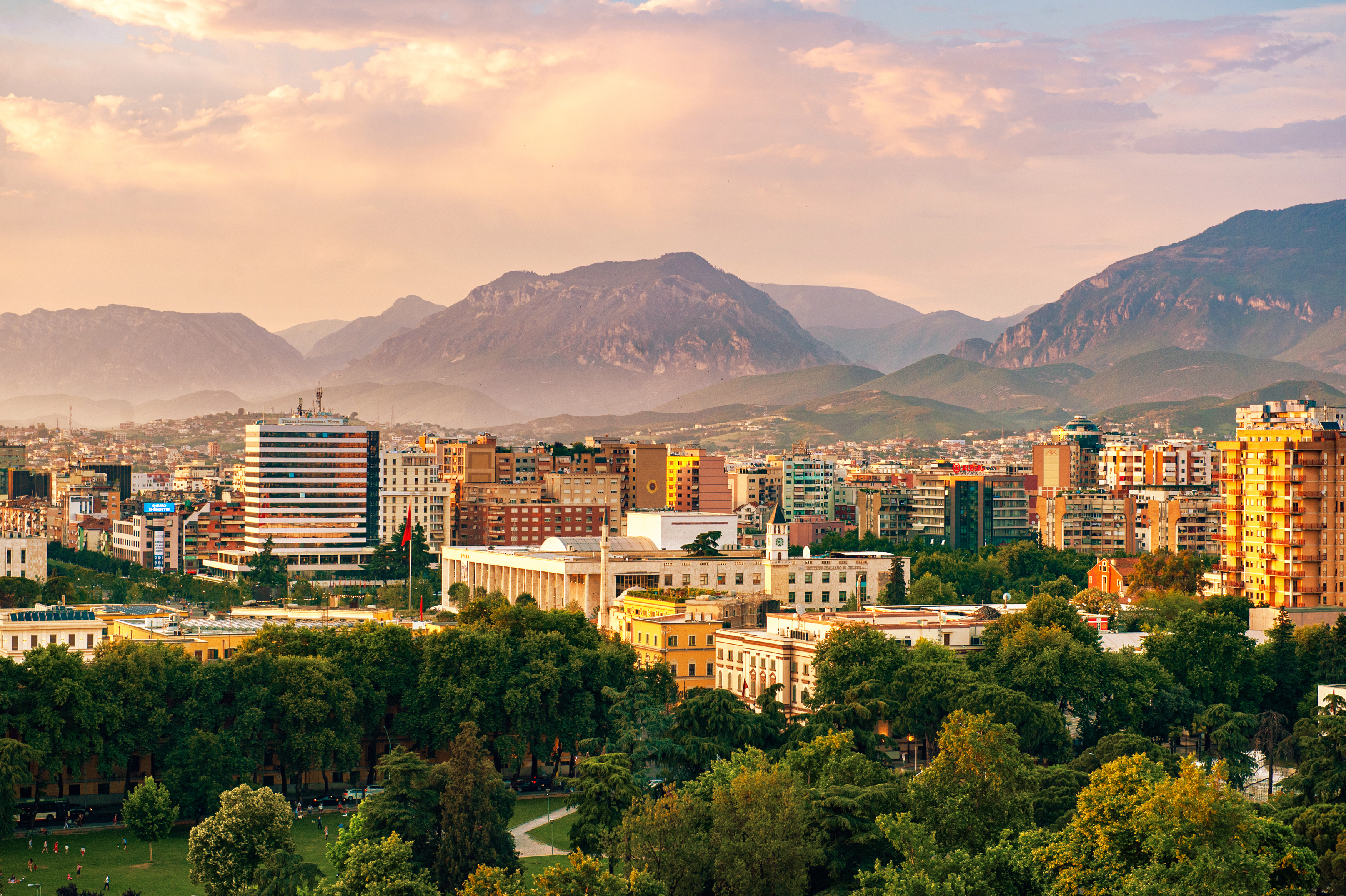
Albania’s name in Albanian, the official language, is Shqipëria, which means The Land of the Eagle. The country’s full, official name is Republika e Shqipërisë (Republic of Albania). Tiranë is its capital and largest city.
Albania was part of the Ottoman Empire for more than 400 years. It gained its independence in 1912. From 1944 until the early 1990’s, Albania was a Communist country.
Government.
A president serves as the head of state in Albania. A prime minister serves as head of government and presides over a cabinet, which helps carry out the functions of the government. The prime minister is the country’s most powerful official.
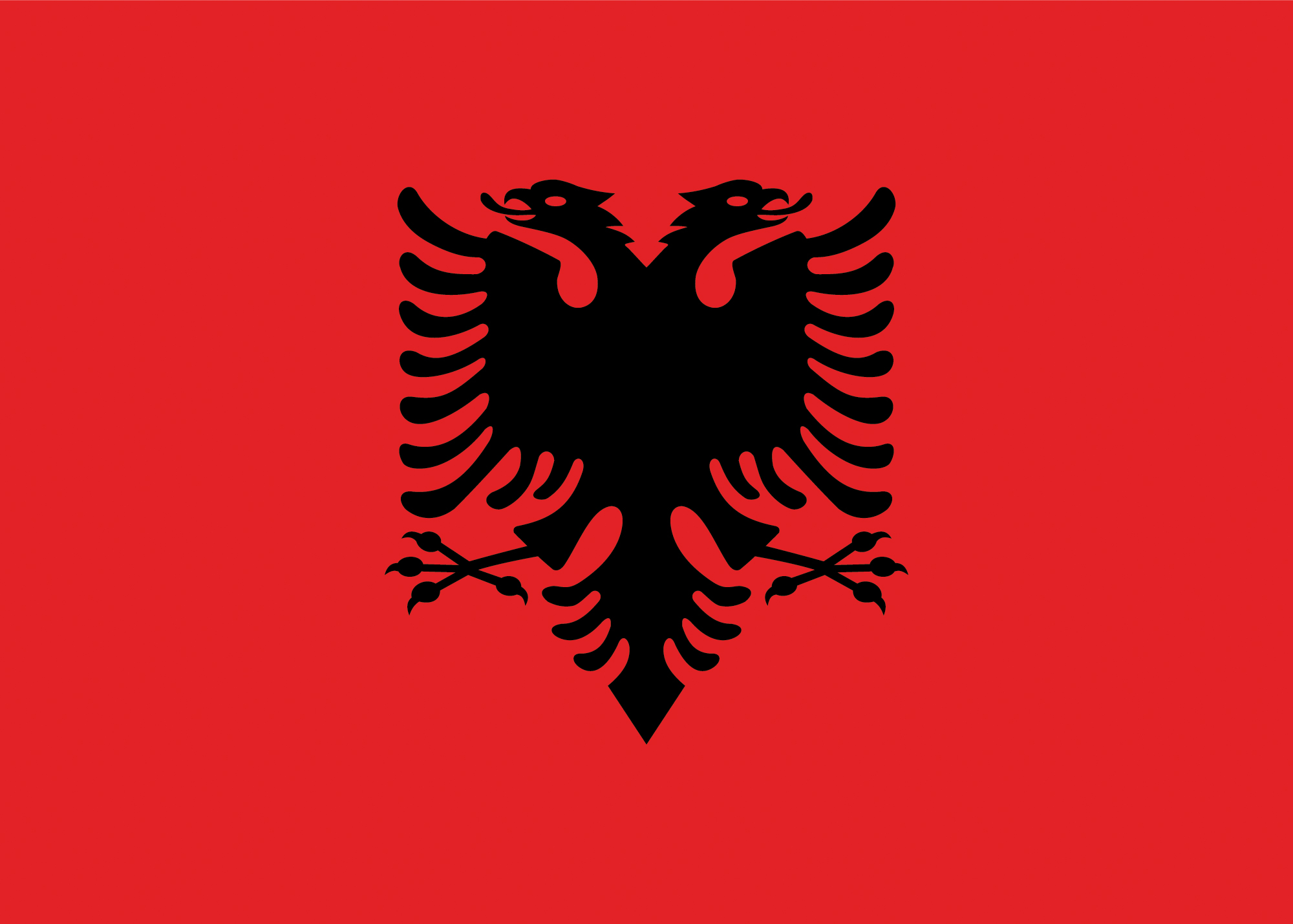
Albania’s parliament, which is called the Assembly, has one house of 140 members. The Assembly elects the president, who then appoints the prime minister. The prime minister, with parliament’s approval, forms a cabinet. Members of the Assembly are elected by the people to four-year terms.
The country is divided into 12 qarqe (counties). A council of elected representatives governs each of Albania’s counties.
People.
Albanians are divided into two major groups—the Ghegs and the Tosks—according to which Albanian dialect they speak. Most of the Ghegs live north of the Shkumbin (also spelled Shkumbî) River, and most of the Tosks live south of the river. A few Greeks live in the regions that adjoin Greece.
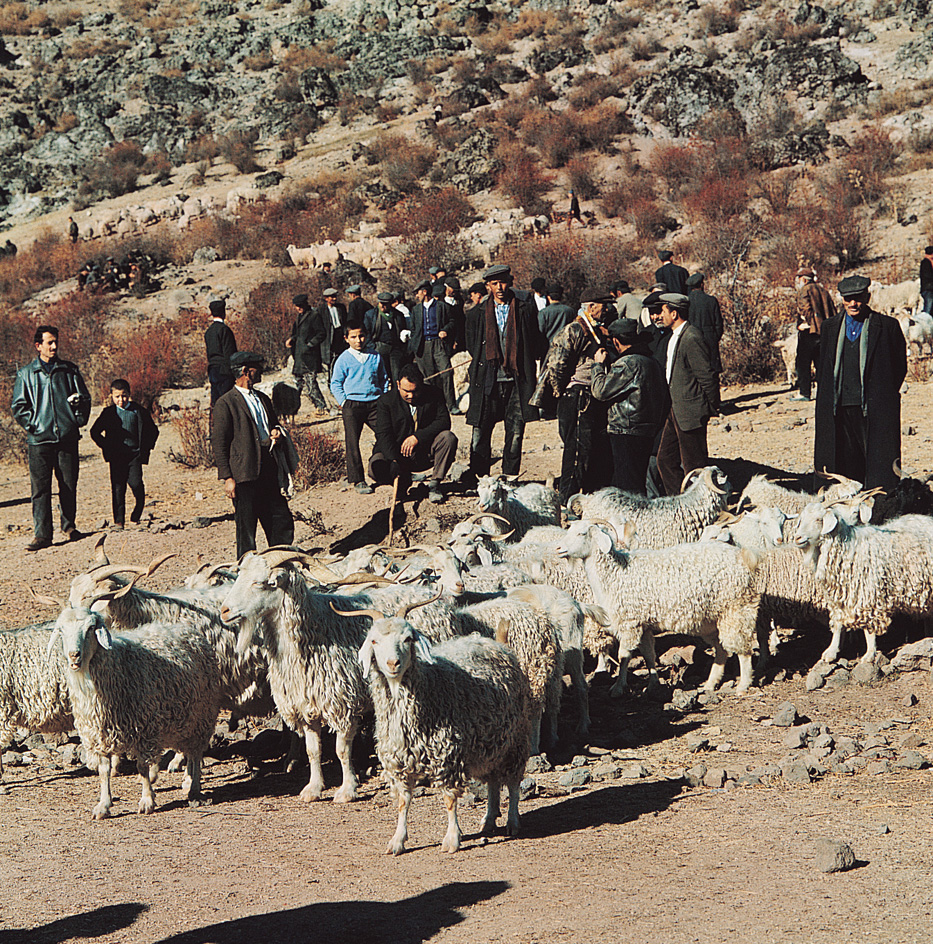
About a third of the people live on farms or in rural villages. A few Albanians along the Adriatic coast earn their living by fishing. There are only eight cities in Albania that have populations of more than 50,000.
Living standards in Albania are extremely low compared with those of other European countries. The incomes of most Albanians are small, but health care, social services, and education are free. Bread, vegetables, and such dairy products as cheese and milk make up the daily diet of most of the people.
About 70 percent of all Albanians are Muslims. Most of the rest, including the country’s Greeks and some of the Tosks, belong to Eastern Orthodox Churches.
All of Albania’s children must complete eight years of school. Aleksandër Xhuvani University in Elbasan and the University of Tiranë are among the country’s largest universities.
Land.
Mountains cover most of Albania. The North Albanian Alps tower about 8,500 feet (2,590 meters) above sea level. Mount Korab (9,068 feet, or 2,764 meters), in the northeastern part of the country, is Albania’s highest point. A coastal plain lies along the Adriatic Sea. Scrub forests cover about 30 percent of the country.
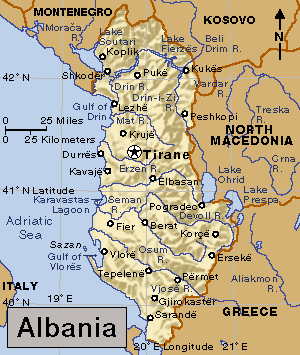
Albania’s major rivers, the Bunë, Drin, Shkumbin, and Vjosë, all empty into the Adriatic Sea. However, the Bunë is the only river that can be used for shipping. Albania shares Lake Scutari (also called Lake Skhodra) with Montenegro, Lake Ohrid with North Macedonia, and Lake Prespa with North Macedonia and Greece.
Along the Adriatic, the climate is mild, with hot, dry summers and rainy winters. The mountains have a moderate climate. The country’s average annual rainfall varies from 40 to 60 inches (100 to 150 centimeters).
Economy.
Albania is one of the poorest countries in Europe. Agriculture is an important sector of Albania’s economy, and it employs more Albanians than any other economic activity. The country’s chief crops include corn, grapes, olives, potatoes, tomatoes, and wheat. Farmers also raise such livestock as beef and dairy cattle, chickens, goats, and sheep.
Albania is rich in mineral resources. Albania’s mines produce chromite, copper, lignite, limestone, and other minerals. The country also produces natural gas and petroleum. Albania has relatively few factories. Its factory products include cement, food products, and textiles.
Albania’s exports include chromite and other minerals, footwear, fruits and vegetables, and textiles. Farm and industrial machinery and food are among its chief imports. Albania imports much more than it exports. Italy is its main trading partner. Remittances (money sent home) from Albanians living in Greece and Italy are also important to the economy.
Buses and trains are common means of transportation in Albania. Private ownership of automobiles was illegal until 1991. Albania’s railroad network connects Tiranë and Durrës—the country’s chief port—with such important industrial centers as Elbasan, Fier, Shkodër, and Vlorë. A small airport outside Tiranë links Albania with several European countries.
History.
About 300 B.C., the Illyrian kingdom covered much of what is now Albania. Greece also had colonies in Albania then, and Greek civilization influenced the Illyrians. In 167 B.C., Roman forces conquered the Illyrians and spread Roman civilization into Albania. When the Roman Empire split in A.D. 395, much of Albania became part of the Eastern Roman, or Byzantine, Empire. Between the 300’s and 1000’s, Goths, Bulgarians, Slavs, and Normans invaded Albania. Southern Albania was part of the Byzantine Empire until 1204. During the 1300’s, much of Albania became part of the Serbian Empire.
Ottoman rule.
The Albanians long resisted attempts by the Ottoman Empire to take over the country. The most distinguished leader against the Ottomans was Scanderbeg (also spelled Skanderbeg or Skënderbeg), who became Albania’s national hero. After Scanderbeg’s death in 1468, the Ottomans conquered Albania, and it became part of the Ottoman Empire. However, during more than 400 years of Ottoman rule, Albanian chiefs controlled most local matters. Many Albanians became Muslims during this period.
Independence.
A number of local uprisings took place in Albania during the Ottoman rule, but a nationalist movement did not develop in the country until the 1800’s. In 1878, a group of Albanian leaders organized the League of Prizren, which called for Albanian self-government within the Ottoman Empire. But Albania remained under Ottoman rule until 1912, when it gained independence during the First Balkan War. In 1913, the great European powers established Albania’s borders, and the country became a self-governing principality. The European powers selected William of Wied, a German prince, as ruler. But he ruled for only a few months. 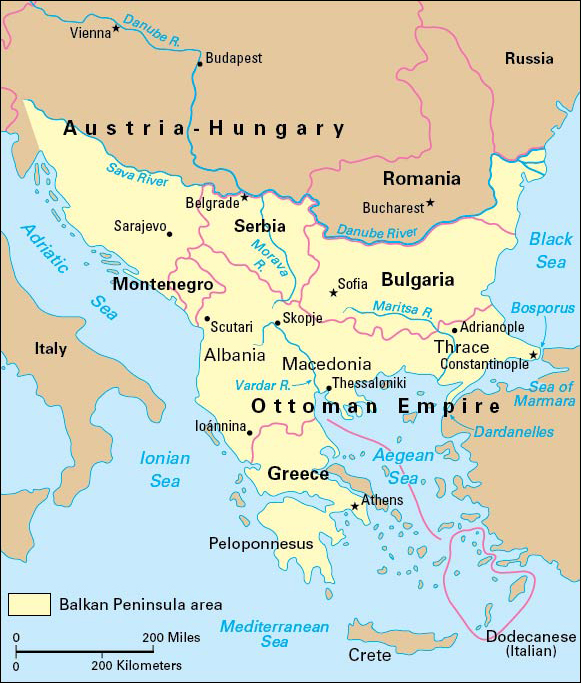
Austro-Hungarians, Italians, Serbs, and French occupied Albania during World War I (1914-1918). The Italians remained until 1920, when Albania insisted on its independence. Ahmed Beg Zogu seized power in 1925, proclaimed Albania a republic, and became the country’s first president. In 1928, Zogu made himself King Zog I. He ruled until 1939.
World War II.
Italy invaded Albania in April 1939 and made the nation part of the Italian Empire. World War II began later that year. When Italy surrendered to the Allies in 1943, during the war, German troops occupied Albania.
During World War II, there were three main resistance movements in Albania: (1) a nationalist movement called Balli Kombetar, led by Midhat Frashëri; (2) a royalist group called the Legality Movement, headed by Abas Kupi; and (3) a Communist organization called the National Liberation Front (NLF), led by Enver Hoxha. These groups fought against one another as well as against the German occupation forces.
Communist control.
In 1944, the Germans were driven out of Albania, and the Communists gained control of the country. Hoxha established a Communist government at Tiranë that year, and he began ruling the country as first secretary of the Communist Party. The Communists greatly restricted the people’s freedom.
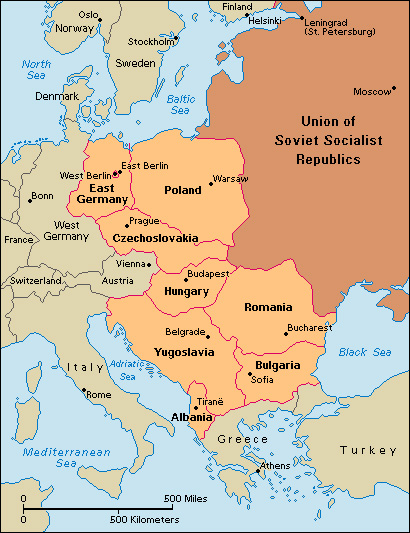
The Communist Party in Yugoslavia had helped the Communists of Albania organize the NLF, and relations with Albania remained close until 1948. But in that year, a split developed between the Soviet Union and Yugoslavia. The split resulted in the expulsion of Yugoslavia from the Cominform, a Soviet-dominated organization of European Communist parties. The people of Albania supported the Soviet Union to free themselves from Yugoslav influence. They also hoped to obtain Soviet aid in gaining control of a part of Yugoslavia where Albanians lived.
Albania’s close relations with the Soviet Union ended in the early 1960’s. At that time, a break occurred between the Soviet Union and China over the interpretations of certain Communist teachings. In particular, China rejected the Soviet Union’s policy of coexistence with non-Communist countries. Albania supported China in the dispute. In 1961, Albania and the Soviet Union broke off relations. At about the same time, Albania limited its contact with most other nations.
China provided Albania with technical assistance and other forms of aid from the 1960’s to the late 1970’s. Albania, in turn, became China’s only ally in Europe. Albanian delegates at the United Nations (UN) also played a leading role in the efforts that led to China’s admission to the UN in 1971.
Relations between Albania and China became strained during the late 1970’s. Albania’s leaders accused China of abandoning Communist principles. They criticized China for improving relations with Yugoslavia and the United States. In 1978, China responded to these attacks by cutting off all aid to Albania. In the early 1990’s, Albania restored relations with the United States, improved relations with China, and increased its contact with other nations. Albania also restored relations with the Soviet Union prior to that country’s breakup in 1991.
Hoxha died in 1985, after ruling Albania for more than 40 years. Ramiz Alia succeeded Hoxha as first secretary of the Communist Party. Alia had been elected president of Albania in 1982, and he continued to serve as president. Alia’s government introduced some social and economic reforms to try to avoid the downfall suffered by other Communist governments in Eastern Europe in 1989. The government again allowed the public practice of religion. In 1967, the government had outlawed all religious groups and seized their property. In 1990, however, places of worship began to reopen. Another reform called for paying workers bonuses to work harder and produce more goods as a way to ease shortages. But the people of Albania felt that the reforms did not go far enough. In December 1990, Albanians staged protests to try to force the Communists from power. As a result of the protests, the Communists allowed new political parties to form.
End of Communist rule.
In March 1991, multiparty national elections were held. The Communists won a majority of seats in the Assembly and remained in power. But protests against Communist rule continued, and the Communist prime minister and his cabinet were forced to resign in June. A temporary government made up of Communists and non-Communists, who had given up their party affiliations, was formed. Thousands of Albanians fled the country to gain more freedom and escape severe economic hardships.
New parliamentary elections were held in March 1992. The Democratic Party won a majority of seats in the Assembly. The following month, Alia resigned as president. The Assembly then elected Sali Berisha of the Democratic Party as president. Berisha supported the creation of a free-enterprise economy, and his government introduced a program for economic reform.
In parliamentary elections held in 1996, the Democratic Party again won a majority of seats in the Assembly. However, international observers criticized the elections for ballot fraud and other irregularities.
In January 1997, tens of thousands of Albanians staged violent protests across the country against Berisha’s government. The protests began after the collapse of investment schemes in which hundreds of thousands of people lost their savings. Most investors blamed the government for not warning them against the risky investments, and they claimed that the government profited from the investment funds. Many people demanded Berisha’s resignation. Berisha remained in office, but he formed a new coalition government and announced that elections would be held in June. But unrest continued to spread, and Albania fell into disorder. Thousands of citizens left the country.
In April, the UN sent an international force to Albania to oversee relief efforts and help restore order. In parliamentary elections held in June and July, the Socialist Party defeated Berisha’s Democratic Party by a landslide. Socialist leader Rexhep Meidani became the new president. Some measure of calm returned, and the UN force left in August.
Recent developments.
In 1998 and 1999, almost half a million ethnic Albanian refugees streamed into Albania from the neighboring Yugoslav province of Kosovo. They were fleeing attacks by Serbian forces. With help from international organizations, Albania housed the refugees for several months until it was safe for them to return.
In 1998, Albania adopted a new constitution. Meidani signed the constitution into law in November of that year. The Socialist Party retained control of parliament in elections in 2001. In 2002, Meidani’s term expired, and parliament chose former defense minister Alfred Moisiu as Albania’s new president.
Disputes arose over the results of parliamentary elections held in 2005. Albania’s Central Election Commission confirmed that the Democratic Party had won the most seats. Berisha, the former president, became prime minister. Albania’s Assembly elected Bamir Topi of the Democratic Party as president in 2007. The Democratic Party continued as the governing party. Albania joined the North Atlantic Treaty Organization (NATO) in 2009.
In 2012, the Assembly elected Bujar Nishani, a former interior minister under Berisha, as the republic’s new president. The Socialists defeated the Democrats in parliamentary elections in 2013, and party leader Edi Rama became prime minister. Rama, a former mayor of TIrana, returned as prime minister following elections in 2017 and 2021. Nishani served as president until 2017, when the Assembly chose Ilir Meta, the leader of the Socialist Movement for Integration (LSI), as president.
In June 2021, the Assembly voted, 104 to 7, to impeach Meta for violating constitutional rules barring a president from participating in partisan (one-sided) political activity. In February 2022, however, Albania’s Constitutional Court overturned the Assembly’s impeachment of Meta. In June, the Assembly elected Bajram Begaj, a major general who served as chief of Albania’s armed forces, to succeed Meta as president.
